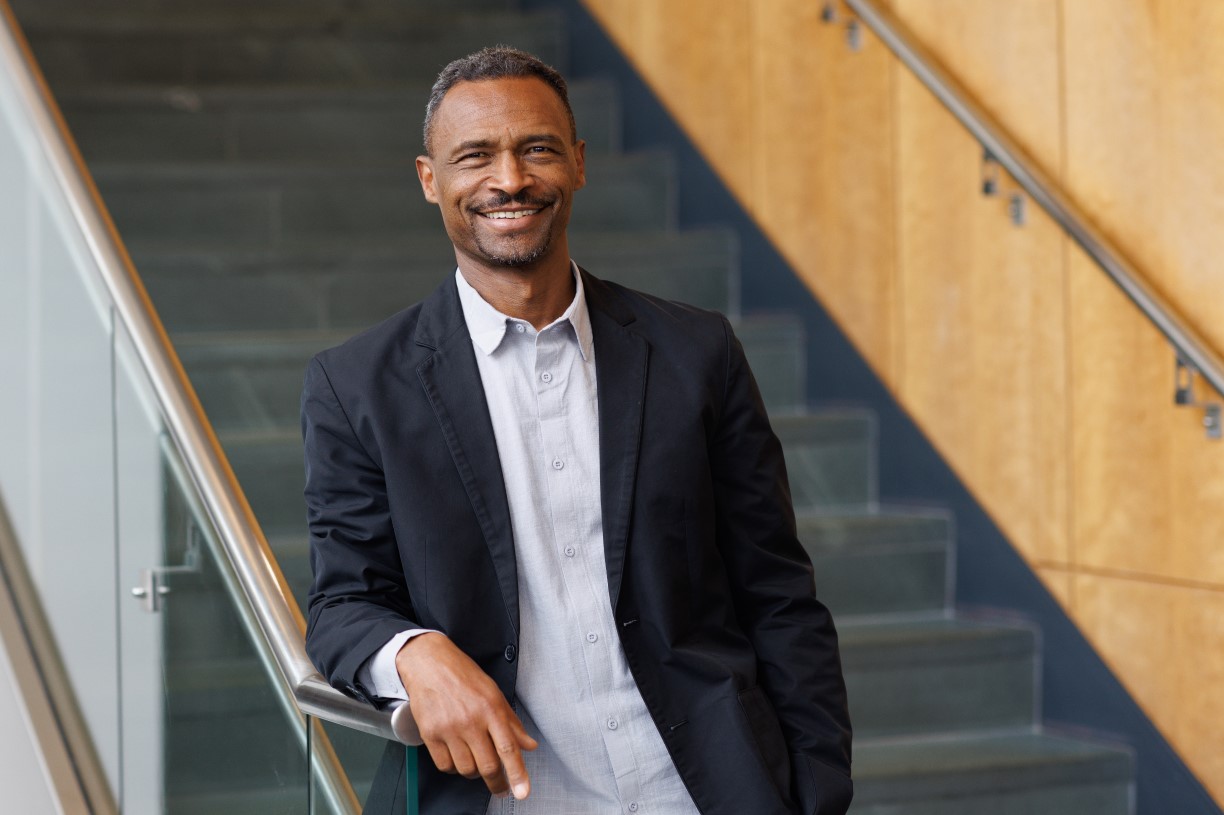
Professor Resende-Santos Receives Fulbright Award
João Resende-Santos, an associate professor of international studies, has been honored with a 2024-2025 Fulbright U.S. Scholar Award, a highly competitive and prestigious academic fellowship offered through the U.S. Department of State.
As a Fulbright U.S. Scholar, Resende-Santos will spend part of the upcoming academic year at the LusoGlobe Research Center at the University of Lusófona in Lisbon, Portugal, examining newly declassified archives for his forthcoming book on U.S. foreign policy in response to the decolonization of Portugal’s African colonies from 1950 to 1975.
“The Fulbright fellowship is one of America’s oldest programs for international cultural and educational exchanges and I’m honored to join its global network of scholars,” he says. Crediting colleague Juliet Gainsborough, a professor of political science and chair of Bentley’s Global Studies department, for her steadfast support throughout the application and selection process, Resende-Santos observes that participating in the Fulbright Program is particularly meaningful given his academic discipline. The fellowships, which were established in 1976 to foster peaceful relations between America and other nations, constitute an “overlooked but important dimension of U.S. foreign policy and its so-called ‘soft power’ influence in the world,” he explains. “As someone who studies U.S. foreign policy, I’m honored to now become a part of it.”
The author of “Neorealism, States and the Modern Mass Army” (2007), a comprehensive look at military emulation in 19th- and early 20th-century Latin American geopolitics, Resende-Santos is also the editor of three previous works exploring political economy in post-colonial Africa: “Innovation Africa: Emerging Hubs of Excellence” (2016) and its companion volume, “Innovation Ecosystems in Africa: Solving the Problems That We Have” (2023), and “Economic Growth and Democracy in Post-Colonial Africa: Cabo Verde, Small States and the Global Economy” (2022).
Focusing on the U.S. response to the liberation movements of Portugal’s African colonies — today the independent nations of Angola, Mozambique, Guinea-Bissau, Cape Verde and São Tomé and Príncipe — his Fulbright project “examines a neglected but significant chapter in U.S. policy during the Cold War,” Resende-Santos explains. Noting that decolonization “sparked one of the longest proxy wars in history” between America and the Soviet Union, he says the political realities of Lusophone (Portuguese-speaking) Africa “compelled the U.S. to choose between commitments to military allies like Portugal versus the aspirations of Black liberation and independence ... [and] represented the broader collision between U.S. policy and revolutionary nationalism in Africa and the Global South.”
Resende-Santos is grateful that his Fulbright Award will enable him to access newly declassified documents reflecting Portugal’s perspective on decolonization. “We gain a stronger, more comprehensive understanding of U.S. policy — its formulation, impact and outcomes — by viewing it from the outside in,” he says. “As declassified materials and archives become available in foreign countries directly involved in major Cold War events, we have a unique opportunity to contribute to a fuller understanding of U.S. policy during this crucial period.”
Since joining Bentley’s faculty in 2001, Resende-Santos has taught undergraduate courses in international relations, comparative politics and Latin American studies. In partnership with the Cronin Office of International Education, he has also developed and implemented faculty-led international courses in Brazil for Bentley students. Resende-Santos also serves as co-adviser of the university’s Model U.N. team and Alpha Alpha Alpha (Tri-Alpha), an honor society for first-generation college students, and was recently recognized by students in Bentley’s Honors Program with the 2024 Arts & Sciences Honors Faculty of the Year Award.
Beyond academia, Resende-Santos is active as a policy practitioner and international consultant in economic development, trade policy and entrepreneurship and has worked with the United Nations, African Development Bank and the World Trade Organization, among others. Believing that the African Diaspora has a role to play in promoting development back on the continent, he continues to be actively involved in educational and policy activities in Cape Verde.

